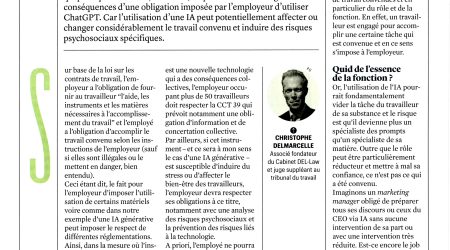Should I repay wrongly paid wages?
Posted the 3 March 2012My employer has miscalculated my salary for years and overpaid me. Can he demand that money back?
The amount your employer overpaid you is called an "undue payment" in legal terms: a payment made without any valid reason or cause.
In principle, anyone who has paid an amount without reason can reclaim it within ten years from the payment, according to Article 2262bis of the Civil Code. For employees under an employment contract, the issue is more delicate. Article 15 of the Employment Contracts Act (1978) specifies that legal actions arising from an employment contract expire after five years if the contract is still ongoing or one year after the contract ends.
The question is whether the undue payment arose from the employment contract (in which case the shorter limitation period applies) or not (in which case the normal ten-year period applies). Courts generally interpret the term "legal actions arising from the contract" broadly, assuming that a connection to the contract is sufficient, meaning that without such a contract, there would have been no right to payment.
Therefore, courts usually apply the shorter limitation period for undue payments because the employer would not have made the payment by mistake if no employment contract had existed.
Moreover, the employer must prove that the amount paid was indeed undue, which is not always easy, as salaries are generally paid in exchange for work. If the situation has continued for a long time, one might argue that the employer agreed to a higher salary.
Finally, your employer may never withhold the amount in question from your salary: wage protection laws prohibit offsetting debts. Debt offsetting is only possible if the debt is undisputed.
Related articles

Is an employer allowed to mandate the use of artificial intelligence tools by employees ? (Trends, 17-07-2025)

Caution if a former colleague opposed to your employer asks you to testify in their favor
